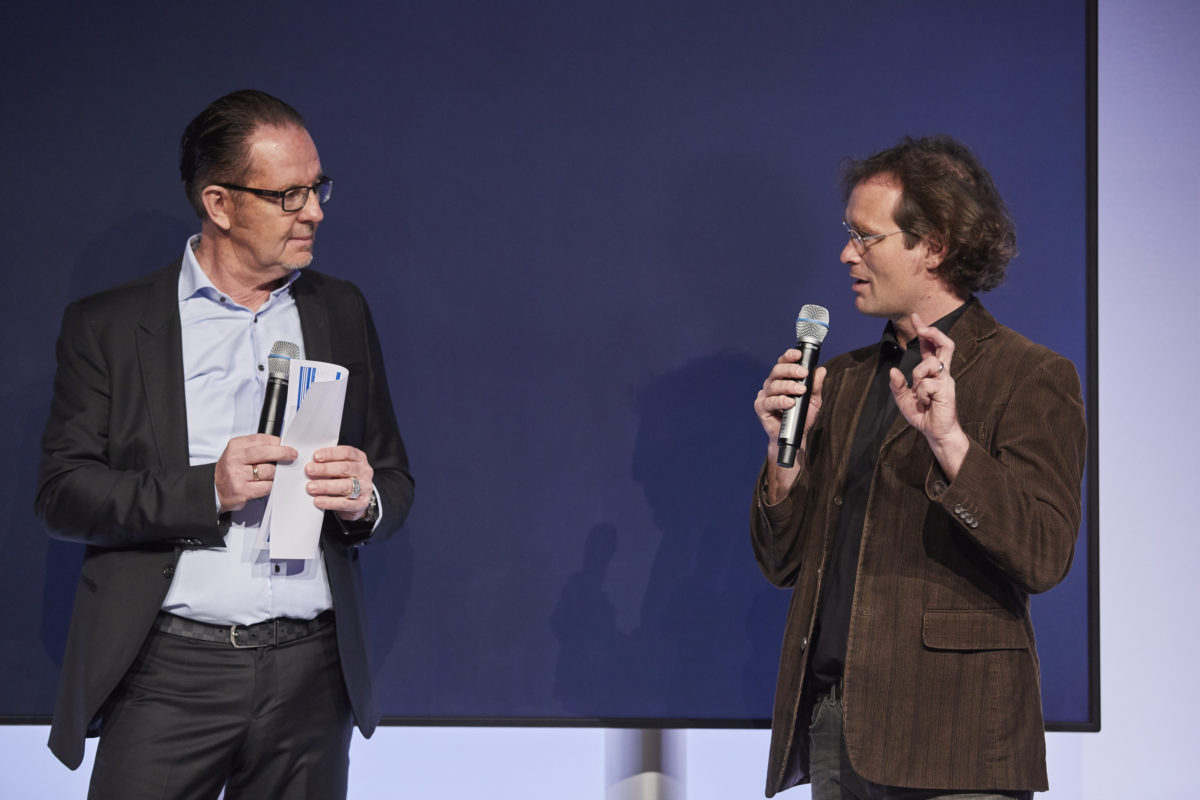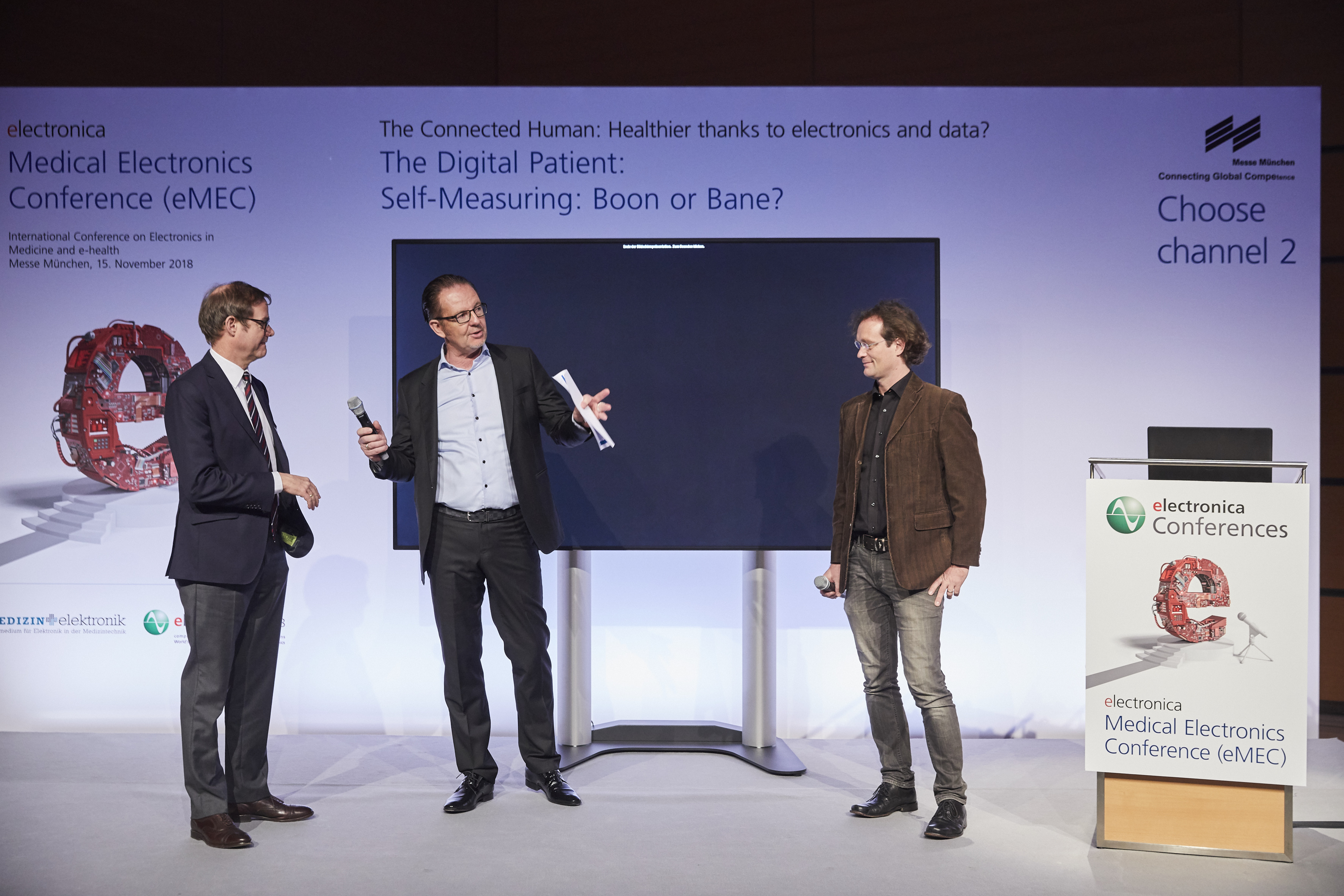Munich, November 15th 2018
Under what conditions can wearables help us answer this and similar questions?
At the eMEC 2018, the international conference on electronics in e-health and medical applications, at electronica last week Prof. Dr. med. Halle, Medical Director and Specialist in Internal Medicine, Cardiology, Sports Medicine, Cardiovascular Preventive Medicine DGPR® at the Technical University of Munich, and Dr. Johannes Kreuzer, co-founder and managing director of Cosinuss GmbH, discuss this subject and provide their respective insights. Josef Lechner from Analog Devices took over the moderation.
Here are the key take-aways:


Conclusion
- Only if wearables are able to continuously capture relevant parameters with high accuracy we have the essential data base to be able to create insights into our health.
- Captured data has to be combined with evidence based research and medical know-how in order to find answers for the respective questions.
- Visualisations of captured data and insights are the key to empower people to assess and manage their health on their own.






